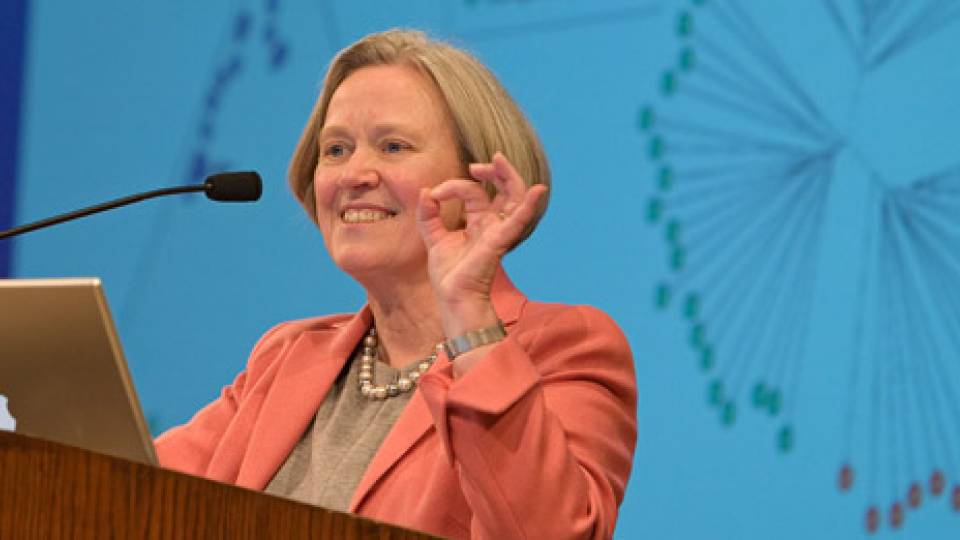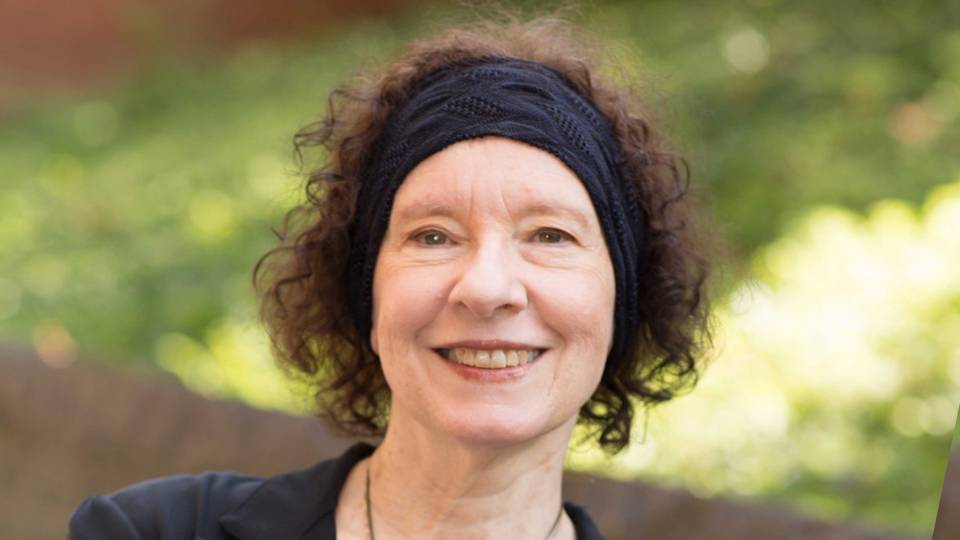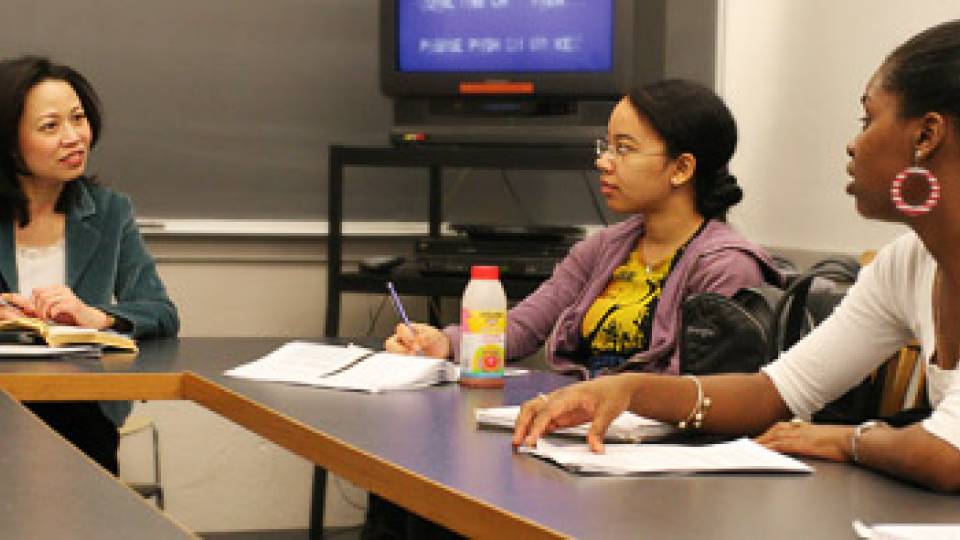Howard Francis Taylor
Howard Francis Taylor, professor of sociology, emeritus, died at his home on Martha’s Vineyard on March 21, 2023. He was 83. A memorial service was held on campus on Friday, April 26, 2024.
Taylor joined Princeton’s faculty in 1973 and transferred to emeritus status in 2007. His teaching and research centered on social psychology, statistics, and IQ testing. At a time when arguments about the presumed genetic differences in the intelligence of Black and white people were prominent — and discussions of IQ were mainly the province of the field of psychology — Taylor became the foremost sociological critic of IQ tests.
“Howard Taylor was there right at the beginning of the critique of IQ testing and of the work of psychologists and sociologists who saw it as a valid test of ‘intelligence’ and something that was highly heritable,” said Paul DiMaggio, the A. Barton Hepburn Professor of Sociology and Public Affairs, emeritus. “And he did this through careful statistical argument, notable both for its incisive analytic rigor and for its clarity of expression.”

Howard Francis Taylor and his wife of 60 years, Patricia Epps Taylor.
“Howard was a real friend and a brilliant sociologist with a deep understanding of race relations,” said Elijah Anderson, the Sterling Professor of Sociology and of African American Studies at Yale University. “He led the field while always making his colleagues and students laugh.”
“Howard had the sharp and probing mind of a scientist with the soul of a humanist: the perfect sociologist!” said Margaret Andersen, co-author of Taylor’s bestselling textbook “Sociology: The Essentials” and the Rosenberg Professor Emerita of Sociology at the University of Delaware. “He was deeply attentive to detail and precision in his work on race and intelligence testing but could explain complex ideas to anyone with clarity and wisdom.”
Born in Cleveland, Ohio, on July 7, 1939, Taylor graduated Phi Beta Kappa from Hiram College with his bachelor’s degree. He earned his Ph.D. from Yale University in 1966. He was the author of over 50 articles and several important books, including “The IQ Game: A Methodological Inquiry into the Heredity-Environment Controversy,” which the journal Medical History said “provide[d] the most comprehensive and closely argued criticism of heritability estimates for human IQ that has yet been made.”
Taylor’s interest in IQ testing later extended to the methodology of standardized testing as it related to group differences. He took an early scholarly interest in the question of minority access to graduate education, conducting studies questioning the predictiveness of the GRE across ethnic and racial groups, with special attention to the question of bias in the test.
Taylor moved to Princeton from Syracuse University in 1973 to direct the fledgling program in African American Studies, which later became the Department of African American Studies. The program, which was founded in 1969, had four directors in its first four years; Taylor remained its director for 15 years and helped put the program on firm footing. He was influential in the recruitments of prominent scholars, including John Jemmott, Toni Morrison, Cornel West and Nell Painter. Morrison’s appointment was especially historic: she was the first African American woman faculty member and among the first women professors hired at Princeton.
Taylor, who received the President’s Award for Distinguished Teaching in 2000, was a key figure in the undergraduate programs in both African American studies and sociology. He was known for teaching difficult subjects. His African American studies course “Race, Class, and Intelligence in America” “encouraged students to be skeptical of the standardized tests on which they had excelled and to understand the role of tests in perpetuating racial inequality,” said Tera Hunter, the Edwards Professor of American History and chair of the Department of African American Studies.
“Taylor was known for being generous and accessible as a professor and mentor, holding office hours well into the evenings. Students relied on his guidance on their independent junior papers and senior theses and sought his advice on navigating curricular, campus and career matters. Colleagues appreciated his sagacious wisdom, wry humor and truth-telling,” said Hunter. “We are now the Department of African American Studies and will be forever grateful for Professor Taylor’s unstinting service to our unit on campus and for his contributions to the broader field of inquiry.”
In the Department of Sociology, Taylor taught the required undergraduate offering in statistics and research design, a heavily quantitative course. “Despite teaching a required course that is sometimes unpopular with majors who resist quantitative methods, Howard was for decades among the most beloved professors on the campus,” said Mitchell Duneier, chair of the Department of Sociology and the Gerhard R. Andlinger ’52 Professor of Social Science. “He had a talent for making research methods and statistics accessible to students with a wide range of math backgrounds and was able to bring anyone who wanted to work hard up to the same speed as anyone else.”
His former students remember him for his skill as a sociologist and as a teacher.
Masamichi Sasaki, an emeritus professor of sociology at Chuo University in Tokyo and a 1980 graduate alumnus said, “Howard comprehensively taught concepts, methods and research in his classes that stimulated students’ sociological imagination. His comments on students’ work were sharp yet constructive, encouraging those who took his courses to improve the quality of their work.”
“Howard brought to his work and his students an intellectual curiosity and clear joy about being a sociologist that made a positive difference in the climate of the department and a lasting impression on me about how one could approach their work, teach and support students, and be a force for inquiry and learning from an alternate perspective,” said Maitrayee Bhattacharyya, a 2006 graduate alumna and senior associate dean for diversity, equity, and inclusion at Brown University. “He pioneered scholarship that argued intelligence was not merely inherited and helped us reflect on within group heterogeneity, and unwaveringly advocated that race was a social construct. I think today we would recognize and label these significant anti-racist contributions to the field.”
Donnell Butler, the founder and president of Opportunity College who earned his Ph.D. from Princeton in 2009, said “I had the privilege of witnessing firsthand how he masterfully leveraged his expertise to ignite the flames of critical thinking within his students’ hearts. He nurtured a good-humored yet intellectual environment that encouraged us all to question the status quo, challenge conventional norms and strive for a more equitable world.”
He added: “Howard had an extraordinary talent for valuing our unique perspectives and experiences while also encouraging us to apply our knowledge conscientiously to address pressing societal challenges. When I look back on how he inspired my research and those of the students in his classes, I see a common thread among us to use the sociological imagination to empower voices often silenced by society or to expand access to opportunities for marginalized populations.”
Taylor received the American Sociological Association’s (ASA) DuBois-Johnson-Frazier Award for distinguished research in race and ethnic relations in 1998. He was also an active member of the Eastern Sociological Society, of which he served as president in 1996-97, and in the ASA, where he co-founded the Minority Opportunity Summer Training program. At Princeton, Taylor served on numerous committees, including the Mellon Mays Undergraduate Fellowship Program, the Committee on Minority Affairs, the Human Subjects Review Panel, and as an adviser to the Caucus of Black Graduate Students.
Taylor was predeceased by his parents, Arthur and Murtis Taylor. He is survived by his wife of 60 years, Patricia Epps Taylor; his daughter Carla Taylor Pla; son-in-law Dr. Raymond Pla; granddaughter Olivia Sinclair Pla; brother Bruce Taylor; nieces Lynne Taylor and Catherine Beaucham; and four nephews: Matt and Daniel Taylor, Scott Jennings, and Whitney Epps.
Donations in Taylor’s honor may be made to the Howard F. Taylor Scholarship Fund at Hiram College, P.O. Box 67, Hiram, OH 44234.
View or share comments on a memorial page intended to honor Taylor’s life and legacy.





